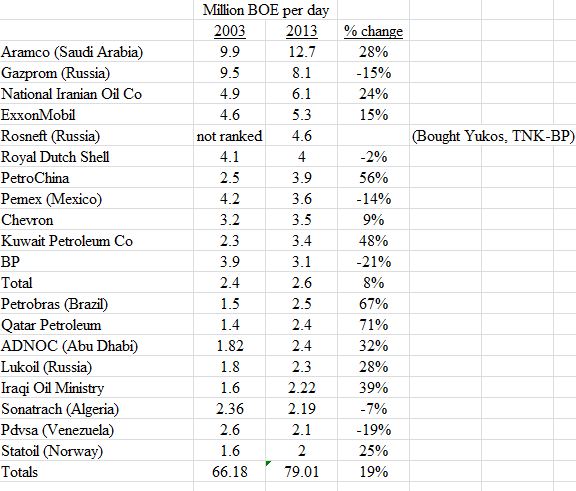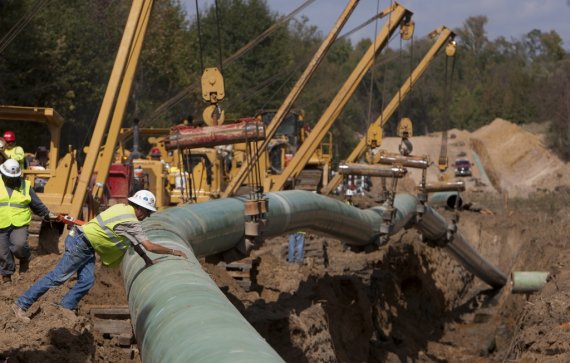The fall of Aubrey McClendon, CEO of Chesapeake Energy, has been meteoric. He was forced to step down as Chairman of its board, and yesterday he was replaced as board chair by Archie Dunham, the 73-year-old former CEO of Conoco. Aubrey’s fall from grace started only a few months ago with articles in the business press about his deal with Chesapeake to own a small interest in every well Chesapeake drilled. Aubrey was borrowing heavily against his personal interests, to the tune of $1 billion, to keep his ship afloat. Then there were allegations about McClendon’s personal trading in futures that “could have been” opposed to the company’s interests, for which the he and the company are now under an SEC investigation. Chesapeake’s shares started falling, and shareholders began complaining about him and his board. At the company’s recent shareholder meeting four board members were forced out, and two who stood for election were soundly defeated. Carl Icahn smelled blood, bought 7.6% of the company, and installed one of his own as a board member. For now, McClendon remains CEO. Archie Dunham’s job is to sell some $7.4 billion of Chesapeake’s properties to get it out of its hole.
McClendon co-founded Chesapeake with Tom Ward in 1989, with $50,000 and 10 employees. He made the company into the nation’s largest domestic gas producer by investing heavily in shale gas plays across the country. In my opinion, he is responsible for the huge resurgence in domestic exploration, and in the rapid increase in gas production — and the precipitous decline in natural gas prices — over the past few years. McClendon and Boone Pickens were the promoters of natural gas, touted as the fuel of the future and the solution to global warming. McClendon is hated by other independents for sweeping into new shale plays with his pocketbook open and offering $25,000 per acre for leases.
I’m no financial expert. But it seems clear to me that Chesapeake’s problems arise from the huge decline in oil and gas prices, and not from any sculduggery by McClendon. In all the press coverage, I have not read anything to indicate that McClendon actually did anything for his personal benefit and against the interests of his company. He may have had bad judgment in betting so big on natural gas, but that is his nature. He is a landman, a speculator, and a wildcatter.

 Oil and Gas Lawyer Blog
Oil and Gas Lawyer Blog


